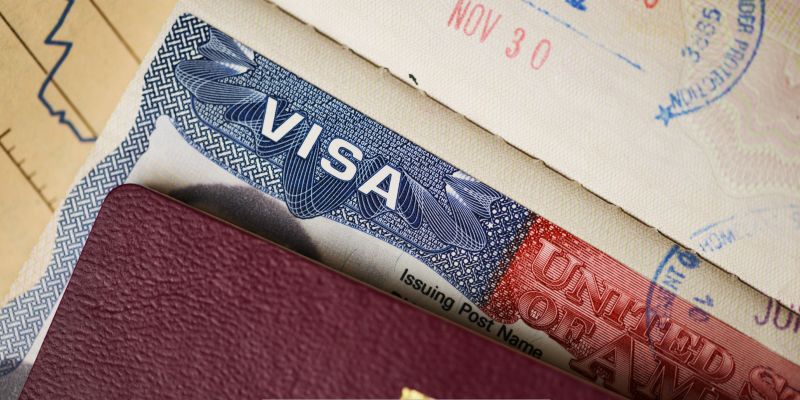Visa validity is a crucial aspect of international travel that often goes overlooked by many travelers. It refers to the period during which a visa holder is permitted to enter, stay, or transit through a foreign country. Understanding visa validity is essential for anyone planning to travel abroad, as it can significantly impact their travel plans and legal status in the host country.
A visa serves as an official document issued by a government that allows foreign nationals to enter its borders for specific purposes, such as tourism, work, or study. However, the terms and conditions associated with each visa can vary widely, making it imperative for travelers to familiarize themselves with the specifics of their visa type. The importance of visa validity cannot be overstated.
It not only dictates the length of stay allowed but also outlines the activities that can be undertaken while in the host country. For instance, a tourist visa may permit sightseeing and leisure activities but prohibit employment, while a work visa allows for professional engagements. Therefore, understanding the nuances of visa validity is essential for ensuring compliance with immigration laws and avoiding potential legal issues during travel.
Key Takeaways
- Visa validity refers to the period during which a visa is considered to be legally active and can be used for entry into a country.
- Types of visa validity include single entry, multiple entry, and long-term visas, each with different rules and restrictions.
- The duration of visa validity can vary widely depending on the type of visa and the issuing country’s regulations.
- Understanding visa expiration dates is crucial for avoiding penalties, deportation, or being barred from re-entering a country.
- Renewing and extending visa validity may be possible in some cases, but it’s important to follow the proper procedures and timelines to avoid complications.
Types of Visa Validity
Visa validity can be categorized into several types, each serving different purposes and governed by distinct regulations. The most common types include single-entry visas, multiple-entry visas, and transit visas. A single-entry visa allows travelers to enter the host country only once during its validity period.
Once they leave, they cannot re-enter without obtaining a new visa. This type of visa is often favored by tourists who plan to visit a country for a short duration and return home afterward. In contrast, multiple-entry visas provide greater flexibility, allowing holders to enter and exit the host country multiple times within the validity period.
This type of visa is particularly beneficial for business travelers or individuals with family ties in the host country who may need to travel frequently. Transit visas, on the other hand, are designed for travelers who are passing through a country en route to another destination. These visas typically have shorter validity periods and may impose restrictions on activities during the layover.
Duration of Visa Validity

The duration of visa validity varies significantly depending on the type of visa issued and the policies of the host country. Some visas may be valid for just a few days, while others can last for several years. For example, tourist visas often have shorter validity periods ranging from 30 to 90 days, reflecting the temporary nature of tourism.
Conversely, work visas may be granted for longer durations, sometimes extending up to five years or more, depending on the employment contract and local regulations. It is also important to note that the duration of stay permitted under a visa may differ from its overall validity period. For instance, a visa might be valid for six months but only allow a maximum stay of 30 days.
This distinction can lead to confusion among travelers who may assume that they can remain in the country for the entire validity period. Therefore, it is essential for travelers to carefully read their visa documents and understand both the validity period and the allowed duration of stay.
Understanding Visa Expiration Dates
| Country | Visa Expiration Period |
|---|---|
| United States | 10 years for B1/B2 visa |
| United Kingdom | 6 months for standard visitor visa |
| Australia | 1 year for visitor visa |
| Canada | 10 years for multiple entry visa |
Visa expiration dates are critical components of visa validity that travelers must pay close attention to. An expiration date indicates the last day on which a visa holder can enter the host country. After this date, the visa becomes invalid, and entry will likely be denied at immigration checkpoints.
It is important to differentiate between the expiration date and the duration of stay allowed under the visa; while a visa may expire on a specific date, it may still permit entry until that date. Moreover, some countries have specific rules regarding how long before expiration a traveler must enter. For example, certain nations may require that travelers enter before their visa expires but allow them to remain in the country for a specified period after entry.
Understanding these nuances is vital for avoiding unintentional violations of immigration laws. Travelers should always check their visa expiration dates and plan their trips accordingly to ensure compliance with all regulations.
Renewing and Extending Visa Validity
Renewing or extending a visa is often necessary for travelers who wish to prolong their stay in a foreign country beyond the original terms of their visa. The process for renewal or extension varies by country and can involve submitting an application along with supporting documents such as proof of financial stability, accommodation details, and sometimes even medical examinations. It is crucial for travelers to initiate this process well before their current visa expires to avoid any legal complications.
In some cases, extensions may be granted based on specific circumstances such as medical emergencies or unforeseen events that prevent timely departure. However, not all visas are eligible for renewal or extension; some may have strict policies that require holders to leave the country upon expiration. Therefore, it is advisable for travelers to consult with immigration authorities or legal experts in the host country to understand their options and ensure compliance with local laws.
Consequences of Overstaying Visa Validity

Overstaying a visa can lead to severe consequences that can affect future travel plans and legal status in both the host country and other nations. The repercussions vary depending on the country’s immigration laws but often include fines, deportation, and bans on re-entry for specified periods. In some cases, overstaying can result in criminal charges or difficulties in obtaining visas for other countries in the future.
Additionally, overstaying can create complications when applying for residency or citizenship in the host country. Immigration authorities may view overstaying as a violation of trust, leading to increased scrutiny during future applications. Therefore, it is essential for travelers to keep track of their visa validity and ensure they depart before their authorized stay ends.
Tips for Managing Visa Validity
Managing visa validity requires careful planning and organization. One effective strategy is to maintain a travel calendar that includes important dates such as visa expiration dates and allowed duration of stay. This calendar can serve as a reminder for upcoming travel plans and help prevent unintentional overstays.
Additionally, travelers should keep copies of their visas and any related documents in easily accessible locations. Another useful tip is to stay informed about changes in immigration policies that may affect visa validity. Many countries periodically update their regulations regarding visas, which can impact travelers’ plans.
Subscribing to official government websites or following relevant news sources can provide valuable insights into any changes that may arise. Lastly, seeking assistance from immigration consultants or legal experts can be beneficial for those who find themselves confused about their visa status or renewal processes. These professionals can offer tailored advice based on individual circumstances and help navigate complex immigration laws.
Importance of Understanding Visa Validity
In conclusion, understanding visa validity is paramount for anyone planning international travel. It encompasses various aspects such as types of visas, duration of validity, expiration dates, renewal processes, and consequences of overstaying. By grasping these concepts, travelers can ensure compliance with immigration laws and avoid potential legal issues that could disrupt their plans.
Moreover, being well-informed about visa validity empowers travelers to make educated decisions regarding their trips abroad. Whether it involves choosing the right type of visa or managing timelines effectively, knowledge about visa validity enhances the overall travel experience. Ultimately, understanding this critical aspect of international travel not only facilitates smoother journeys but also fosters respect for the laws and regulations of host countries.
If you are planning to travel internationally, it is important to be aware of the validity period of your visa. Understanding the expiration date of your visa can help prevent any issues or delays during your trip. For more information on the benefits and challenges of VPN split tunneling, check out this insightful article here.
FAQs
What is a visa validity period?
A visa validity period refers to the length of time during which a visa is considered to be valid for entry into a particular country. It is important to note that the validity period of a visa does not necessarily indicate the length of time a traveler is allowed to stay in the country, but rather the window of time during which they are permitted to enter.
How long is a typical visa validity period?
The length of a visa validity period can vary greatly depending on the country and the type of visa. Some visas may be valid for only a few months, while others may be valid for several years. It is important for travelers to carefully review the visa requirements for their specific destination to understand the validity period of their visa.
Can a visa validity period be extended?
In some cases, it may be possible to extend the validity period of a visa. However, this process typically requires the traveler to submit a formal request to the appropriate immigration authorities and provide a valid reason for the extension. It is important to note that not all visas are eligible for extension, and the specific requirements for extending a visa can vary by country.
What happens if a visa expires during a traveler’s stay in a foreign country?
If a traveler’s visa expires while they are in a foreign country, they may be subject to fines, deportation, or other legal consequences. It is important for travelers to carefully monitor the validity period of their visa and take appropriate action to renew or extend it before it expires. In some cases, it may be possible to apply for a visa extension or a new visa while in the foreign country, but this process can be complex and time-consuming.









